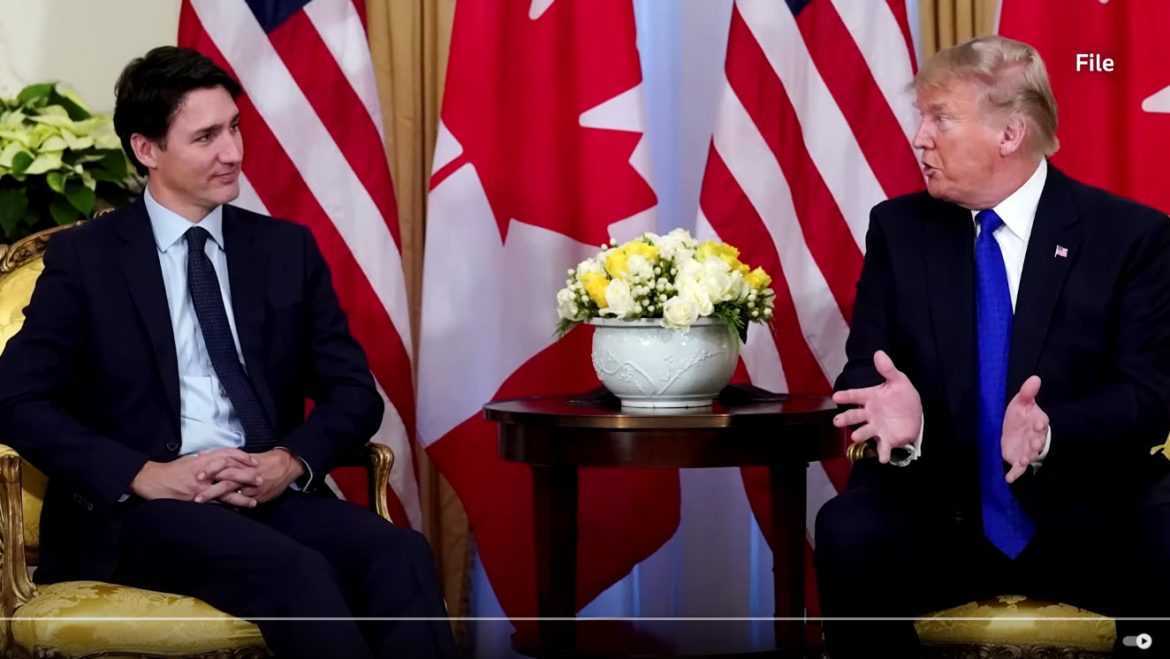President-elect Donald Trump and Canadian Prime Minister Justin Trudeau recently held a high-stakes meeting at Trump’s Mar-a-Lago club in Florida to address growing tensions over trade and border security. The discussions came on the heels of Trump’s announcement of a proposed 25% tariff on all Canadian imports, a move that has sparked fears of a potential trade war between the two nations. Trump cited concerns over drug trafficking and illegal immigration as the rationale for the tariffs, framing them as necessary measures to protect U.S. interests.
During the meeting, Trudeau emphasized the historically cooperative nature of U.S.-Canada relations and the importance of maintaining strong economic ties. He argued that the U.S.-Canada border should not be treated in the same way as the U.S.-Mexico border, pointing to significantly lower levels of illicit activity. Trudeau highlighted Canada’s efforts to strengthen border security, including plans to deploy additional drones, enhance surveillance capabilities, and increase law enforcement personnel along key transit points.
Trudeau also made a case for the deep economic integration between the two countries, underscoring the potential harm tariffs could inflict on industries that rely heavily on cross-border trade. The Canadian Prime Minister expressed concerns about the ripple effects on jobs and businesses on both sides of the border, particularly in sectors such as automotive manufacturing, agriculture, and energy.
Trump described the meeting as “very productive,” stating that they discussed a wide range of topics, including trade, border security, and energy policy. While he acknowledged the need for further dialogue, Trump did not provide any assurances that the proposed tariffs would be withdrawn. Instead, he reiterated his commitment to securing the U.S. border and addressing trade imbalances, stating that he would always prioritize the interests of American workers.
The discussions also touched on energy collaboration, with both leaders agreeing on the importance of maintaining a stable North American energy supply chain. Trudeau reiterated Canada’s commitment to being a reliable energy partner and raised concerns about the potential economic fallout of disrupting trade in oil and gas between the two countries.
Despite the cordial tone of the meeting, Trudeau left without a clear resolution to the tariff issue, prompting concerns from Canadian officials and industry leaders. Back in Canada, Trudeau stressed the need for continued engagement with the U.S., calling for “calm and constructive dialogue” to resolve the trade dispute.
The meeting highlights the complexities of U.S.-Canada relations, where security concerns must be balanced against deeply intertwined economic interests. While both leaders have pledged to continue working toward mutually beneficial solutions, the uncertainty surrounding the proposed tariffs has left businesses and policymakers on edge. As negotiations continue, the outcome could have far-reaching implications for one of the world’s largest bilateral trade relationships.



